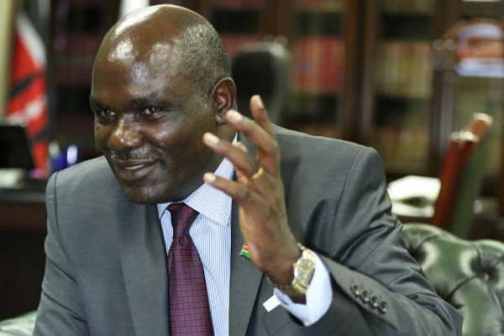×
The Standard e-Paper
Fearless, Trusted News

New Independent and Electoral Boundaries Commission (IEBC) chairman Wafula Chebukati is worried.
With hardly a month in office, Chebukati has expressed fears over constrained timelines ahead of the August 8 General Election.